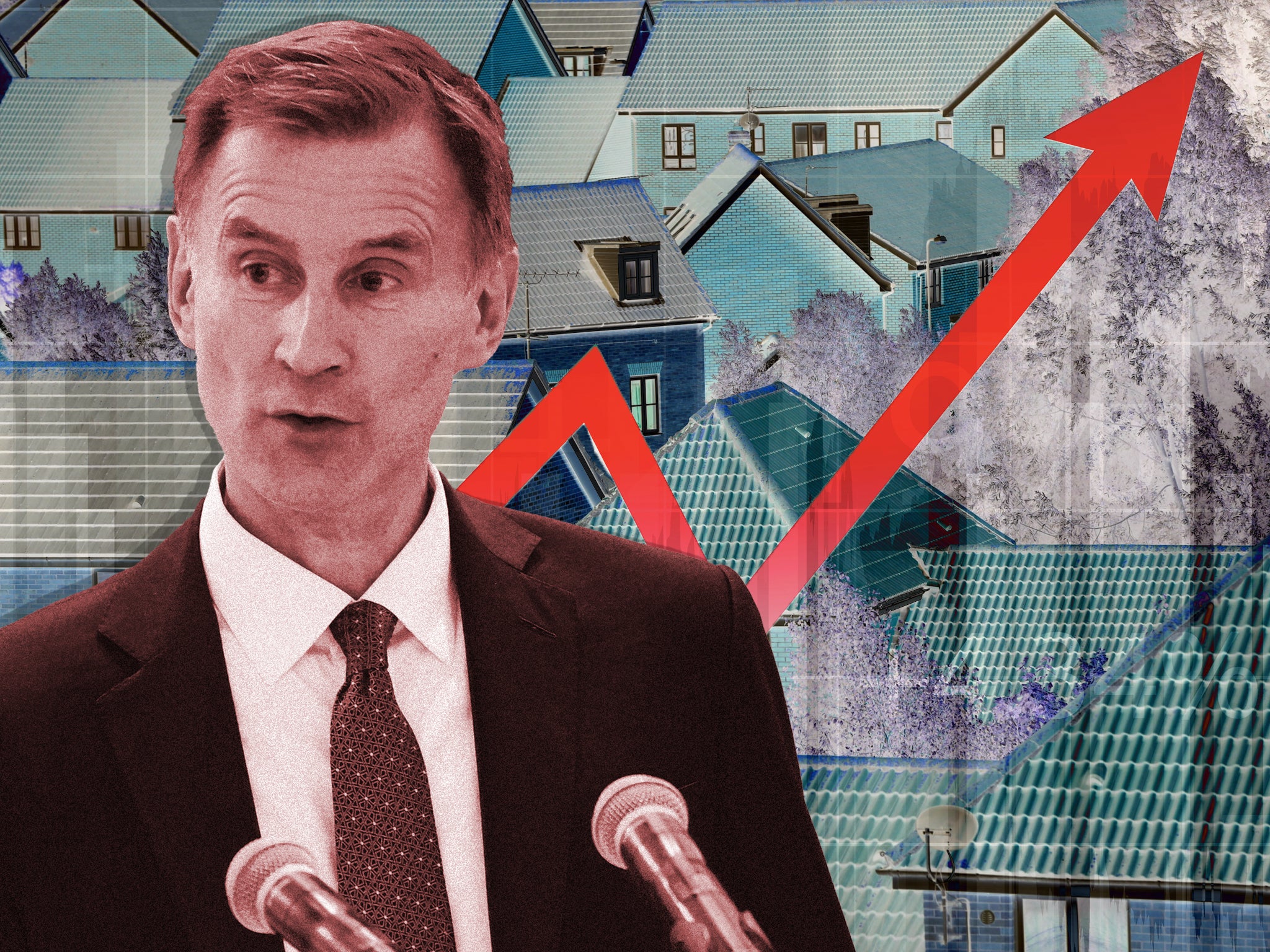Why tax cuts are still off Jeremy Hunt’s agenda
Better-than-expected borrowing figures are not enough to allow the government to appease Tory backbenchers, says Tom Peck


Lower than anticipated borrowing figures for July, amid a slightly improving economic situation, have led to calls for Jeremy Hunt and Rishi Sunak to cut taxes before the next election. Hunt has immediately dampened down the speculation.
How has the economic situation improved?
Public sector borrowing for July was £4.3bn. This is still an incredibly high number but it comes on the back of better than expected tax receipts, and is significantly lower than the £6bn that was forecast by the Office for Budget Responsibility in the spring budget. To understand the context of this “good news”, it means that the national debt is now merely 98.5 per cent of GDP. Earlier this year, it topped 100 per cent for the first time since such figures have been calculated, which was in 1961.
So are things really turning around?
They are, but slowly, and from an extremely low starting point. Inflation at between 6 and 7 per cent is still disastrous, just less disastrous than at the start of the year, when the figure was over 10 per cent. £4.3bn in public sector borrowing in the month of July is still the fifth-highest July number there has ever been, and that includes the pandemic years, when the government directly paid millions of people’s wages.
So should we expect tax cuts?
It is clear that Sunak would love to cut taxes before the election. When chancellor he described himself as a “tax cutting chancellor” but simultaneously oversaw the overall tax take rising to its highest level in 50 years.
But he and Hunt are right that the single biggest challenge they face is to tackle inflation. Tax cuts are an inflationary measure. They put more money into people’s pockets and thus contribute to price rises. Governments that want to tackle inflation usually put up taxes, rather than cut them. Hunt has said: “It’s vital that we don’t alter our course and [that we] continue to act responsibly with the public finances. Only by sticking to our plan will we halve inflation, grow the economy and reduce debt.”
So if not now, when?
This week is meant to be “education week” and Keir Starmer’s words will have been heard by Sunak and Hunt. He has talked of how he “vividly remembers” budgeting as a student for rent, bills and food, and that if he were 18 now, he “wouldn’t be able to afford to go”. These, frankly, are unwise words, which risk scaring young people away from a better future. But they do make the challenge facing Hunt and Sunak clear.
Inflation must be tackled. Cutting taxes to appease Tory right wingers, and risking undoing all the hard work on lowering inflation, would risk them being characterised as having turned their backs on young voters.
The Bank of England is widely expected to raise rates again next time around, with some economists forecasting a “double” hike – from 5.25 per cent to 5.75 per cent. A bank raising interest rates while a government cuts taxes is a farcical situation which would risk rendering Sunak and Hunt almost as ridiculous as Truss and Kwarteng.
Tax cuts may yet come in time for the election, but now is almost certainly too soon.






Join our commenting forum
Join thought-provoking conversations, follow other Independent readers and see their replies
Comments